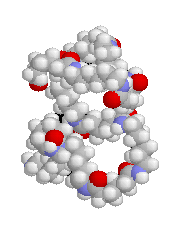Reusing Polymers: Promoting a Circular Economy
Reusing Polymers: Promoting a Circular Economy
Blog Article
Discovering the Varied Applications and Advantages of Polymers in Different Industries
Polymers, with their diverse series of residential properties and functionalities, have become important in various industries, each enjoying one-of-a-kind gain from their application. Polymers. From improving security and performance in the automotive industry to transforming clinical tools in the health care sector, polymers play a critical function. Furthermore, their eco-friendly nature is modifying the landscape of sustainability techniques. As we explore the midsts of polymers in electronics, we uncover sophisticated developments, while their architectural stability changes the realm of construction and framework. The prevalent influence of polymers across industries is a testament to their flexibility and versatility, forming the future of countless industries.
Automotive Market Applications
Polymers play an essential function in enhancing the efficiency and longevity of various components within the auto market. These versatile materials are extensively made use of in the production of various parts, ranging from interior components to under-the-hood applications. One famous usage of polymers in the auto market remains in the production of lightweight elements. By replacing standard steel parts with polymer-based choices, cars can attain improved gas performance without jeopardizing on toughness or safety.

Health Care Sector Benefits
In numerous health care applications, the benefits of using polymers are widely identified for their diverse variety of useful residential or commercial properties. Polymers play a critical duty in the health care market as a result of their adaptability, biocompatibility, and cost-effectiveness. One of the main advantages of polymers in medical care is their ability to be tailored to certain demands, such as versatility, toughness, and biodegradability, making them excellent for a broad variety of medical applications.
Polymer-based products are thoroughly used in medical tools, such as catheters, implants, prosthetics, and medication distribution systems, because of their biocompatibility and capability to mimic all-natural tissues. These materials can reduce the risk of allergic reactions or rejections, enhancing person safety and security and outcomes. Furthermore, polymers are light-weight, making them suitable for wearable clinical tools and making sure patient convenience.
Additionally, polymers enable the growth of cutting-edge therapy techniques, such as hydrogels for tissue engineering and nanocomposites for targeted drug distribution. Their simplicity of handling and sterilization makes them vital for preserving high standards of health in medical care settings. Overall, the diverse advantages of polymers contribute considerably to innovations in clinical innovation and client care.
Ecological Benefits of Polymers

Additionally, polymers can add to power cost savings because of their light-weight nature. In sectors such as transportation, light-weight polymer products can assist reduce gas usage and greenhouse gas discharges. Furthermore, polymers can make it possible for the advancement of energy-efficient products such as insulation products that enhance power preservation in structures.
Additionally, polymers play an important role in lowering water air pollution. The use of polymer-based filtration systems can efficiently get rid of pollutants and pollutants from wastewater, safeguarding water sources and ecological communities. Generally, the ecological advantages of polymers make them valuable properties in advertising sustainability and environmentally friendly practices across various industries.
Polymers in Electronics and Modern Technology
Thinking about the boosting need for ingenious and lasting remedies in contemporary markets, the integration of innovative polymer technologies in the world of electronic devices and modern technology has emerged as a pivotal approach for driving efficiency and efficiency. Polymers have actually transformed the electronics industry by making it possible for the manufacturing of lighter, much more adaptable, and durable see this here digital gadgets. From mobile phones to clinical tools, polymers play an important function in improving product style and capability.
One significant advantage of polymers in electronic devices is their insulating buildings, which help shield fragile electronic components from environmental elements and electrical disturbance. In addition, polymers are important in the development of adaptable displays, wearable technology, and printed electronic devices, providing endless opportunities for producing smart and interconnected tools.
Additionally, the use of polymers in digital packaging has actually brought about improvements in miniaturization and thermal administration, improving the general performance and reliability of digital systems. As modern technology proceeds to progress, the convenience and flexibility of polymers will certainly drive additionally development in the electronic devices sector, shaping the future of modern technology.
Function of Polymers in Building and Framework
Polymers use various benefits in the building industry due to their flexibility, sturdiness, and cost-effectiveness. One essential role of polymers in building and construction is their usage in coverings and sealants, providing security against ecological factors such as dampness, UV radiation, and corrosion.
Furthermore, polymers play an essential role in lasting construction methods by allowing the advancement of energy-efficient frameworks. Shielding products made from polymers help manage indoor temperatures, reducing the demand for heating and cooling systems and eventually reducing power consumption. The use of polymer-based composites in infrastructure jobs such as bridges and roadways improves their longevity and reduces maintenance expenses. Overall, the incorporation of polymers in construction and framework showcases their significant effect on contemporary engineering practices.
Verdict
In final thought, polymers play a critical duty in different sectors such as automotive, health care, ecological, electronic devices, and building. Their functional residential properties make them useful in creating ingenious solutions and products. From improving gas efficiency click to read in lorries to improving medical tools, polymers offer many benefits. In addition, their influence on reducing waste and promoting sustainability highlights their value in contemporary applications. The prevalent usage of polymers demonstrates their substantial payment to advancing innovation and boosting lifestyle.
Report this page